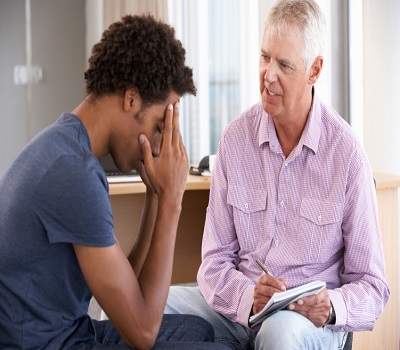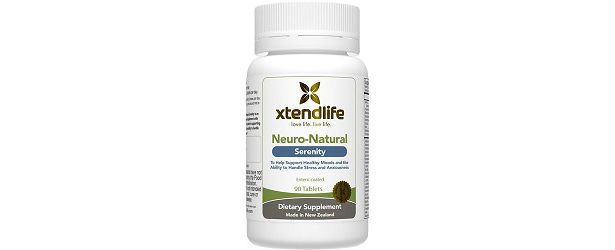
Anxiety Attacks and How to Treat Them
Stress is normal, even useful. A common, human emotion, it can be helpful by motivating us to prepare for some of the following:
- Trying, important events
- Activities and meetings
- Upcoming tests
- Speeches or interviews
Stress can also heighten our senses and focus our attention in critical situations. It was designed to save our life since adrenaline produces the flight or fight response that helps us deal with emergencies. But too much stress that is always present or overwhelming can turn into anxiety. If stress interferes with your life rather than helping it, perhaps an anxiety disorder is to blame.
One feature of an anxiety disorder is the anxiety attack. These are episodes of excessive anxiety, also known as panic attacks, whose symptoms can include:
- A loss of control

- Feeling like you going crazy
- Shortness of breath
- Heart palpitations
- Upset stomach
- Trembling
- Hot flashes or chills
Specific triggers can set off an anxiety attack, such as a stressful environment or upsetting event, or the fear of something stressful about to happen. Or the attack can occur with no trigger or warning sign whatsoever. These episodes often last under a half-hour, peaking at 10 minutes or so. When they are in the midst of a panic attack, some people are afraid that they are about to die, especially since the symptoms of an anxiety attack are very similar to that of a heart attack. After having experienced an anxiety disorder, even just once, the fear of experiencing another one may prevent the sufferer from doing the things that person may have typically enjoyed.
Treatment
Treating an anxiety attack is a two-step process. Acute attacks must be treated as quickly as possible. When you start feeling the first signs of a panic attack, counter it with a fast-acting benzodiazepine tranquilizer to reduce the severity and duration of the attack. Yet there are side effects to benzodiazepine. These include drowsiness, queasiness, and loss of coordination. Side effects may worsen with higher doses. On rare occasions, anti-anxiety medications can have the opposite of their intended effect, and can even be dangerous. Instead of calming the user, they may cause mania, anger, and aggressiveness. Watch carefully for side effects when using such drugs.
 Next, besides stopping an immediate episode, try to prevent attacks from happening in the future. The best way to accomplish this is through a combination of therapy and medication. Cognitive-behavioral therapy helps turn irrational and negative thoughts into positive, proactive ones. Exposure therapy is another common method. This therapy repeatedly and gradually exposes patients to higher levels of the anxiety triggering situation, until they learn to control their fears and are no longer overwhelmed and overcome by them.
Next, besides stopping an immediate episode, try to prevent attacks from happening in the future. The best way to accomplish this is through a combination of therapy and medication. Cognitive-behavioral therapy helps turn irrational and negative thoughts into positive, proactive ones. Exposure therapy is another common method. This therapy repeatedly and gradually exposes patients to higher levels of the anxiety triggering situation, until they learn to control their fears and are no longer overwhelmed and overcome by them.
Long-Term Medication
Occasionally, therapy by itself is not enough to prevent anxiety attacks, so long-term medication is sometimes recommended. Antidepressants and benzodiazepines are the anti-anxiety medications most commonly prescribed. These drugs, while effective, also have side effects, some of which can be severe. These drugs are also potentially addicting. It’s important to do your research and consult with your doctor about the risks versus the benefits before choosing any long-term medication as a treatment option. Also keep in mind that while drugs can help you control the symptoms of anxiety or panic attacks, it does not treat the root cause of the disorder the way therapy does.
So if anxiety attacks are making your life miserable, a blend of therapy and medication can help bring worry and panic down to a manageable level and prevent the anxiety from taking over your life. With proper treatment, many people suffering from anxiety and panic attacks can continue to live happy, fulfilling lives.
TOP 5
ANXIETYTreatments |
|||||
| AnxiClear | Exulin | Hapinex | MindSoothe | ReloraMax | |
|---|---|---|---|---|---|
| 1 | 2 | 3 | 4 | 5 | |
| Overall Rating | 99.50% | 87.30% | 82.10% | 76.80% | 72.80% |
| Performance* |





|





|





|





|





|
| Speed of Results* | Extremely Fast | Good | Good | Average | Average |
| Quality of Ingredients | Premium | Good | Good | Average | Unknown |
| Customer Satisfaction Evaluation | 99.40% | 85.30% | 80% | 74% | 70.30% |
| Safety Evaluation | Safe for Use | Safe for Use | Safe for Use | Safe for Use | Safe for Use |
| Customer Service Rating |





|





|





|





|





|
| Reorder Rate | Highest | Good | Average | Average | Average |
| Return Policy | Risk Free | Unopened | Unclear | Good | Risk Free |
| Success Rate* | 99.40% | 86.20% | 81% | 74.50% | 69% |

 Subscribe Now
Subscribe Now











